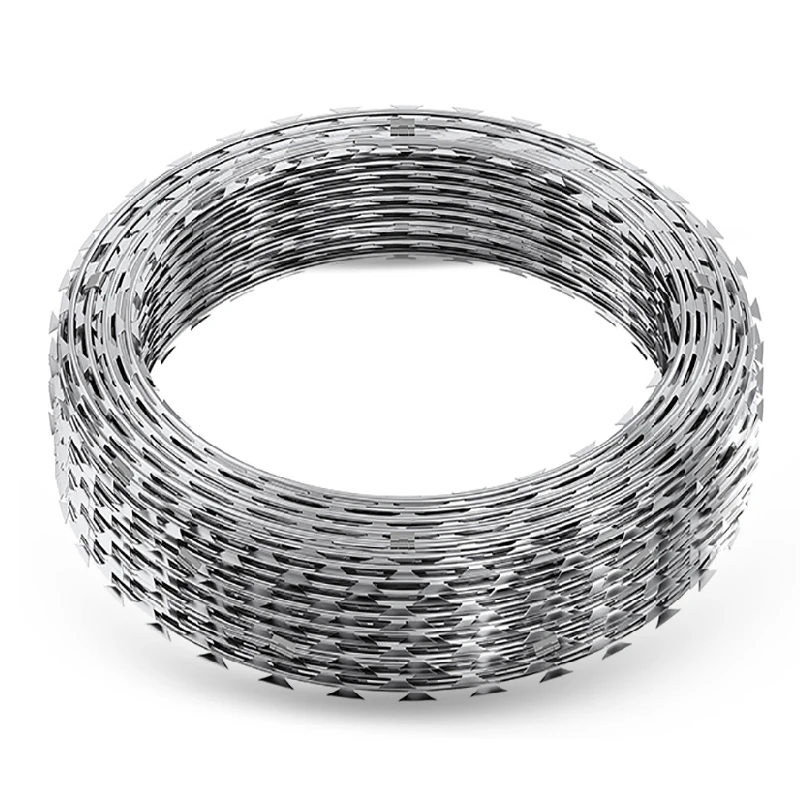Dec . 03, 2024 17:49 Back to list
concrete mesh types
Understanding Concrete Mesh Types A Comprehensive Guide
Concrete is one of the most widely used construction materials in the world due to its strength, durability, and versatility. However, the integrity of concrete structures depends heavily on the use of reinforcement materials, among which concrete mesh plays a pivotal role. This article delves into the various types of concrete meshes, their applications, advantages, and selection criteria to provide a comprehensive understanding of their significance in construction.
What is Concrete Mesh?
Concrete mesh, often referred to as wire mesh or reinforcement mesh, consists of a grid of steel wires that are welded together at specific intervals to form a sheet or roll. This mesh is infused into concrete to enhance its tensile strength, control cracking, and improve durability. The incorporation of concrete mesh is vital in structural applications, including slabs, beams, and walls, where enhanced load-bearing capabilities are required.
Types of Concrete Mesh
1. Welded Wire Reinforcement (WWR)
Welded wire reinforcement is one of the most common types of concrete mesh. It consists of longitudinal and transverse wires that are welded at their intersections. WWR is available in various sizes and is typically measured in terms of the wire diameter and spacing. This type of mesh provides uniform strength and is ideal for slabs, pavements, and walls. Its simplicity and effectiveness make it a popular choice among contractors.
2. Welded Wire Fabric (WWF)
Welded wire fabric is similar to WWR but is designed to have a higher number of wires in both directions. This mesh type offers improved strength and load distribution, making it suitable for thicker concrete installations such as industrial floors and heavy-duty pavements. WWF can be produced in different shapes and sizes, catering to specific construction needs.
3. Steel Fiber Reinforcement
Steel fibers are small, discrete pieces of steel that can be mixed into concrete rather than being laid out as a separate mesh. This type of reinforcement enhances the tensile strength and toughness of concrete, making it more resistant to cracking. Steel fiber reinforcement is particularly useful in applications subjected to dynamic loading conditions, such as industrial floors, shotcrete applications, and precast elements.
4. Galvanized Steel Mesh
Galvanized steel mesh is coated with a layer of zinc to prevent corrosion, making it suitable for use in environments exposed to moisture or chemical agents. This type of mesh is especially beneficial in landscaping, road construction, and marine applications where durability against environmental factors is critical.
5. Polymer and Composite Mesh
concrete mesh types

In recent developments, polymer and composite meshes have emerged as alternatives to traditional steel meshes. These materials are lightweight, resistant to corrosion, and can provide adequate reinforcement for various concrete applications. Polymer meshes are particularly attractive for projects with specific aesthetic or environmental concerns, such as exposed concrete surfaces.
Advantages of Using Concrete Mesh
The use of concrete mesh offers numerous advantages, including
- Enhanced Strength Concrete alone is strong in compression but weak in tension. Concrete mesh improves its tensile strength, allowing structures to bear greater loads.
- Reduction of Cracking By providing a continuous reinforcement layer, concrete mesh helps control shrinkage and thermal cracking, enhancing the longevity of the structure.
- Versatility Different types of concrete mesh can be selected based on the project requirements, ensuring optimal performance under various conditions.
Selection Criteria
When selecting the appropriate type of concrete mesh for a project, consider the following factors
- Load Requirements Assess the load-bearing needs of the structure to determine the necessary mesh size and type.
- Environmental Conditions Consider exposure to moisture, chemicals, or other environmental factors that may affect the material's longevity.
- Installation Method Choose a mesh type compatible with the chosen concrete placement method, be it pour-in-place, precast, or shotcrete.
- Cost and Availability Evaluate the budget constraints and the availability of materials to make a practical choice that meets both performance and financial criteria.
Conclusion
Concrete mesh is an integral component in reinforcing concrete structures, offering enhanced strength, durability, and resistance to cracking. Understanding the different types of concrete mesh and their applications can significantly impact the success of construction projects. By selecting the right mesh based on specific project requirements, construction professionals can ensure longevity and structural integrity, ultimately leading to safer and more reliable buildings.
-
Reinforcing Mesh: Core Material of the Construction Industry
NewsJul.07,2025
-
Welded Wire Fabric Reinvented for Modern Projects
NewsJul.04,2025
-
Superiority of Stainless Steel Woven Mesh
NewsJul.04,2025
-
Key Types of Razor Wire and Their Applications
NewsJul.04,2025
-
Durable Metal Fence Types for Security
NewsJul.04,2025
-
Best Materials for Livestock Fence
NewsJul.04,2025
products.







